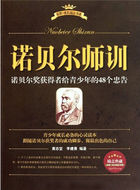His vision and his sense of access to God had given a new courage to his mind; in these moods of enlightenment he could see the world as a comprehensible ball, he could see history as an understandable drama.He had always been on the verge of realizing before, he realized now, the two entirely different and antagonistic strands that interweave in the twisted rope of contemporary religion; the old strand of the priest, the fetishistic element of the blood sacrifice and the obscene rite, the element of ritual and tradition, of the cult, the caste, the consecrated tribe; and interwoven with this so closely as to be scarcely separable in any existing religion was the new strand, the religion of the prophets, the unidolatrous universal worship of the one true God.Priest religion is the antithesis to prophet religion.He saw that the founders of all the great existing religions of the world had been like himself--only that he was a weak and commonplace man with no creative force, and they had been great men of enormous initiative--men reaching out, and never with a complete definition, from the old kind of religion to the new.The Hebrew prophets, Jesus, whom the priests killed when Pilate would have spared him, Mohammed, Buddha, had this much in common that they had sought to lead men from temple worship, idol worship, from rites and ceremonies and the rule of priests, from anniversaryism and sacramentalism, into a direct and simple relation to the simplicity of God.Religious progress had always been liberation and simplification.But none of these efforts had got altogether clear.The organizing temper in men, the disposition to dogmatic theorizing, the distrust of the discretion of the young by the wisdom of age, the fear of indiscipline which is so just in warfare and so foolish in education, the tremendous power of the propitiatory tradition, had always caught and crippled every new gospel before it had run a score of years.Jesus for example gave man neither a theology nor a church organization; His sacrament was an innocent feast of memorial; but the fearful, limited, imitative men he left to carry on his work speedily restored all these three abominations of the antiquated religion, theology, priest, and sacrifice.
Jesus indeed, caught into identification with the ancient victim of the harvest sacrifice and turned from a plain teacher into a horrible blood bath and a mock cannibal meal, was surely the supreme feat of the ironies of chance....
"It is curious how I drift back to Jesus," said Scrope."I have never seen how much truth and good there was in his teaching until I broke away from Christianity and began to see him plain.
If I go on as I am going, I shall end a Nazarene...."He thought on.He had a feeling of temerity, but then it seemed as if God within him bade him be of good courage.
Already in a glow of inspiration he had said practically as much as he was now thinking in his confirmation address, but now he realized completely what it was he had then said.There could be no priests, no specialized ministers of the one true God, because every man to the utmost measure of his capacity was bound to be God's priest and minister.Many things one may leave to specialists: surgery, detailed administration, chemistry, for example; but it is for every man to think his own philosophy and think out his own religion.One man may tell another, but no man may take charge of another.A man may avail himself of electrician or gardener or what not, but he must stand directly before God; he may suffer neither priest nor king.These other things are incidental, but God, the kingdom of God, is what he is for.
"Good," he said, checking his reasoning."So I must bear witness to God--but neither as priest nor pastor.I must write and talk about him as I can.No reason why I should not live by such writing and talking if it does not hamper my message to do so.But there must be no high place, no ordered congregation.Ibegin to see my way....
The evening was growing dark and chill about him now, the sky was barred with deep bluish purple bands drawn across a chilly brightness that had already forgotten the sun, the trees were black and dim, but his understanding of his place and duty was growing very definite.
"And this duty to bear witness to God's kingdom and serve it is so plain that I must not deflect my witness even by a little, though to do so means comfort and security for my wife and children.God comes first....""They must not come between God and me....""But there is more in it than that."
He had come round at last through the long clearing-up of his mind, to his fundamental problem again.He sat darkly reluctant.
"I must not play priest or providence to them," he admitted at last."I must not even stand between God and them."He saw now what he had been doing; it had been the flaw in his faith that he would not trust his family to God.And he saw too that this distrust has been the flaw in the faith of all religious systems hitherto....
(13)
In this strange voyage of the spirit which was now drawing to its end, in which Scrope had travelled from the confused, unanalyzed formulas and assumptions and implications of his rectory upbringing to his present stark and simple realization of God, he had at times made some remarkable self-identifications.















